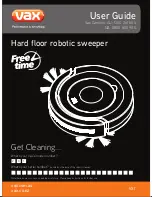
2
Safe Operation Practices for Snow Throwers
IMPORTANT:
This machine is capable of amputating hands and feet and throwing objects. Failure to observe the following
safety instructions could result in serious injury or death.
SAFETY RULES
WARNING: This snow thrower is for
use on sidewalks, driveways and other
ground level surfaces. Caution should
be exercised while using on sloping
surfaces. Do not use snow thrower on
surfaces above ground level such as
roofs of residences, garages, porch es
or other such structures or buildings.
WARNING: Snow throwers have ex-
posed rotating parts, which can cause
severe injury from contact, or from ma-
terial thrown from the discharge chute.
Keep the area of operation clear of all
persons, small children and pets at all
times including startup.
WARNING: Always disconnect spark
plug wire and place it where it can not
con tact plug in order to pre vent ac ci -
den tal start ing when setting up, trans-
port ing, ad just ing or making re pairs.
Look for this symbol to point out im-
por tant safety precautions. It means
CAUTION!!! BE COME ALERT!!! YOUR
SAFE TY IS IN VOLVED.
• Do not operate the equipment without wearing ad e -
quate winter outer garments. Avoid loose, dangling
clothing, such as scarves, which can get caught in
rotating parts. Wear footwear that will improve footing
on slippery surfaces.
• Handle fuel with care; it is highly fl ammable.
-
Never smoke while refueling.
-
Use an approved fuel container.
-
Never remove fuel tank cap or add fuel to a running
engine (motor) or hot engine (motor).
-
Fill fuel tank outdoors with extreme care. Never fi ll
fuel tank indoors.
-
Replace fuel cap securely and wipe up spilled
fuel.
-
Never store fuel or snow thrower with fuel in the
tank inside of a building where fumes may reach
an open fl ame or spark.
-
Check fuel supply before each use, allowing space
for expansion as the heat of the engine (motor)
and/or sun cause fuel to expand.
STATIC ELECTRICITY HAZARD -
-
Never fi ll containers inside a vehicle or on a truck
or trailer bed with a plastic liner. Always place
con tain ers on the ground, away from your vehicle
before fi lling.
-
When practical, remove gas-powered equipment
from the truck or trailer and refuel it on the ground.
If this is not possible, then refuel such equipment
on a trailer with a portable container, rather than
from a gasoline dispenser nozzle.
-
Keep the nozzle in contact with the rim of the fuel
tankopening at all times, until re fu el ing is complete.
Do not use a nozzle lock-open device.
-
If fuel is spilled on clothing, change clothing im-
me di ate ly.
• For all units with electric starting motors use electric
starting ex ten sion cords certifi ed CSA/UL. Use only
with a receptacle that has been installed in accordance
with local inspection authorities.
• If snow thrower must be operated over gravel surface,
use extra caution and be sure skid plates are adjusted
to lowest (highest scraper clear ance) position.
• Never attempt to make any ad
just ments while the
engine (motor) is running (except when specifi cally
rec om mend ed by manufacturer).
• Let engine (motor) and snow thrower adjust to outdoor
temperatures before starting to clear snow.
• Always wear safety glasses or eye shields during op-
eration or while performing an adjustment or repair to
protect eyes from foreign objects that may be thrown
from the snow thrower.
OPERATION
• Do not operate this machine if you are under the infl u-
ence of alcohol or taking drugs or other medication
which can cause drowsiness or affect your ability to
operate this ma chine.
• Do not use this machine if you are mentally or phys i cal ly
unable to operate this machine safely.
TRAINING
• Read the operating and service instruction manual
care ful ly. Be thoroughly familiar with the controls and
the proper use of the equipment. Know how to stop the
unit and disengage the controls quickly.
• Never allow children to operate the equipment. Never
allow adults to operate the equipment without proper
instruction.
• Keep the area of operation clear of all persons, par-
tic u lar ly small children and pets.
• Exercise caution to avoid slipping or falling especially
when operating in reverse.
PREPARATION
• Remove foreign objects. Thoroughly inspect the area
where the equip ment is to be used and remove all
doormats, sleds, boards, wires, rocks & landscaping.
• Disengage all clutches before starting engine (mo-
tor).
CAUTION: Muffl er and other engine
parts become extremely hot during
operation and remain hot after engine
has stopped. To avoid severe burns on
contact, stay away from these areas.
WARNING: Engine exhaust, some of
its con
stit u ents, and certain vehicle
com po nents contain or emit chem
i-
cals known to the State of Cal i for nia
to cause can cer and birth defects or
oth er re pro duc tive harm.



































